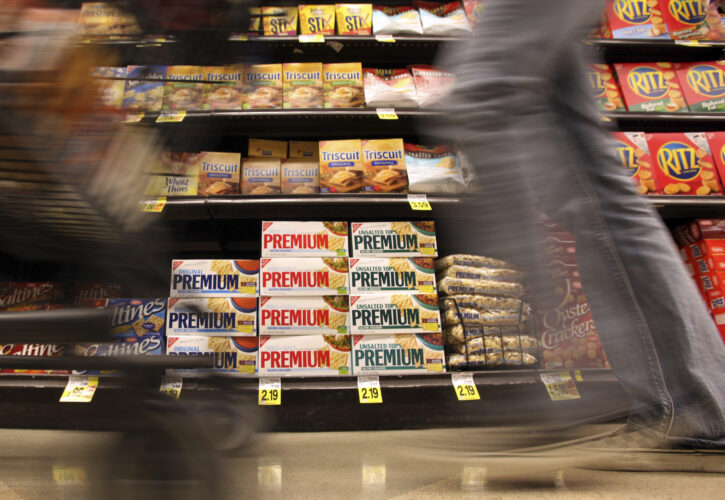Defying decades of health advice, snack foods like chips, cookies, and granola bars have now replaced entire meals for countless Gen Zers and Millennials. Roughly half of all U.S. consumers have three or more snacks per day, an eight percent rise in the past two years, according to research from Circana Group as reported by the Wall Street Journal Monday.
Driving this mounting phenomenon are the younger generations from the teens to those in their early forties.
“Millennials took something that had a negative connotation with older generations—parents would tell you ‘don’t snack and spoil the meal’—and turned snacks into the entire meal itself,” said Andrea Hernández, author of online food and beverage newsletter, Snaxshot.
Snacking has been around for decades but the more recent prevalence of the trend accounts for 22 percent of caloric intake among U.S. adults. Food price inflation and a rise in video gaming are both said to responsible.
Due to increasing food prices, many are opting to buy lower-cost food. U.S grocery chain, Kroger stated they are appealing to the growing snacking consumer base by offering more boxes containing smaller snack bags.
“Eating occasions have become slightly more evenly spread out throughout the day, shifting consumption away from mealtimes,” reported an analysis of eating patterns in the U.S by the Hartman Group, a research consultancy. “The decline in meal occasions witnessed in 2021 persisted in 2022, as consumers have shifted to more frequent snacks, with fewer items per occasion.”
Up eight percent from 2022, 49 percent of today’s consumers are seeking out snacks that come in multiple packs for numerous reasons such as controlling portions and saving money, according to Circana.
International food brand Mondelez’s 2022 State of Snacking survey found that noshing on small portions of packaged food is a global phenomenon. Driven by Gen Z and millennials, the company saw a 42 percent increase in morning snacking between 6 a.m. and 10 a.m. in 2021 compared to 2013. Women across the globe were more inclined to snack in the early hours of the day or skip meals, altogether, according to the survey.
Mondelez’s global head of insights and analytics, Nick Graham said Gen Z and millennial customers tend to consume about 10 percent more snacks on a daily basis compared to other age groups.
They also found a 10 percent increase in people replacing breakfast, lunch, and dinner with snacks between 2020 and 2022.
Companies like Mondelez, which manufactures packaged foods like Ritz crackers and Oreo cookies, and the chocolate giant, Hershey, have seen their revenue skyrocket 22 percent and 30 percent, respectively, from 2019 to 2022.
Junk food has negative health effects linked to obesity and diabetes. Millennials are projected to be the most obese generation of all time—more than seven in 10 of those born from 1981 to 1996 will be obese by the time they reach middle age. And constant snacking in the absence of nutrient-dense meals can lead to unwanted weight gain.


















Add comment